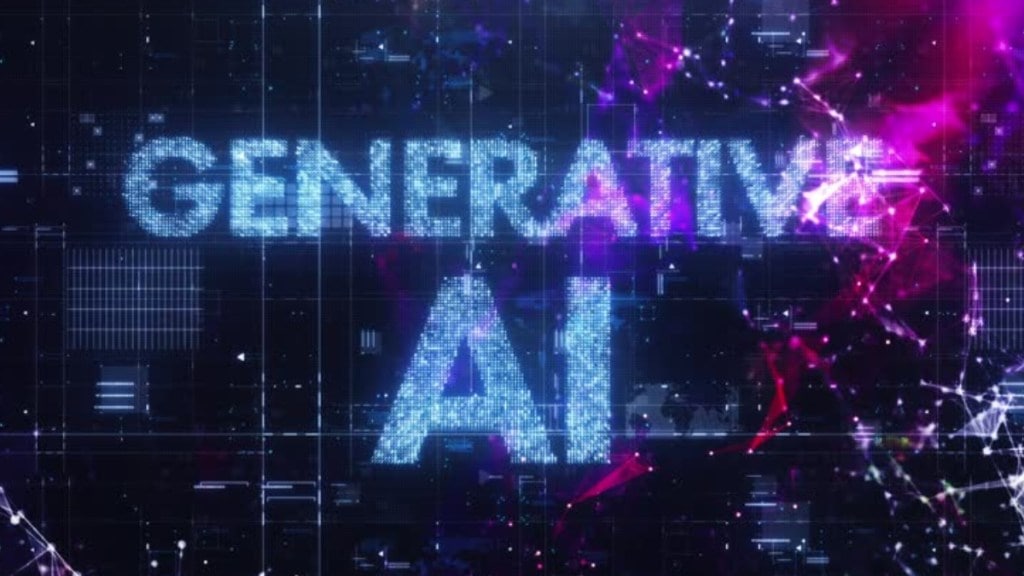The development life cycle of enterprise system digital transformation processes has experienced various changes in the last decade. One of the most significant revolutions is Generative AI – a model that is revolutionising industries by changing the ways business is run, developed and improved. From remote work assistance to bespoke user interfaces, Generative AI helps to facilitate the enterprise’s progressive automation of work.
The Rise of Generative AI in Enterprise Systems
Generative AI is a subset of artificial intelligence specializing in creating new content, tackling complex problems, and enhancing decision-making processes.
New enterprise capabilities found in Generative AI involve aspects such as predictive modelling, anomaly detection, and self-replication of business processes.Imagine AI as a tool that empowers you to: generate high-quality code, create stunning UI/UX designs, and develop data-driven business strategies. Generative AI makes the transition from a concept to a reality and allows companies to adapt quickly in a growingly consolidating market environment.
AI is not just a new technology; it’s a transformative force reshaping the very definition of enterprise systems.Organizations and companies will be able to harness deep learning models to generate fresh content and ideas, driven by their ability to analyze vast amounts of data and identify hidden patterns that humans might miss. From the automation of many complicated processes to the creation of invaluable data, Generative AI helps enterprises bypass most known challenges and grow at a stable rate and incredibly.
How Generative AI Benefits Enterprises
1. Streamlining Operations: General AI also assures time-consuming work is handled by lines of code as employees are accorded the chance to tackle more strategic projects. This efficiency reduces operational costs and increases productivity.
2. Enhancing Decision-Making: Based on the analysis of huge amounts of data, which could hardly be analyzed by man, AI offers enterprises useful solutions. For instance, Generative AI can provide insights into likely market trends, help analyze the supply chain processes and determine customer behaviour.
3. Improving Customer Experience: Claiming to be personalized user interactions, Generative AI offers the services of creating content, chatbots and interactive solutions. Companies can offer solutions that seem tailored for each client which increases their value.
4. Driving Innovation: Generative AI is best characterized as creative problem-solving. AI prototypes and simulations in utilizing enterprise designs contribute to faster innovation cycles apart from maintaining a competitive advantage.
Honouring a Visionary’s Contribution
Honish Joseph, a pathbreaker in the domain of digital transformation and AI innovation, can show how Generative AI can be most transformative when integrated with enterprise systems. For years he has been instrumental in the development of flexible, robust and scalable web applications. And it is not just programming; he is a unique type of professional I would characterize more as a digital architect.
Some of Joseph’s accomplishments include: Natural language understanding chatbots for carrying out human-like conversions & enterprise gateway systems for easy access to enterprise systems. His love for AI and machine learning – especially generative AI – has placed him right on the cutting edge of this technological evolution.
Moreover, his advocacy for ethical AI and user experience shows that it must develop good systems with correct endings and easy navigation. In the process, he has shown how with Generative AI, human capabilities can be expanded and used to unlock the potential of employees to create value.
The Future of Generative AI in Enterprises
As we can see, the integration of Generative AI into enterprise systems will remain an ongoing process in the future. The following wave of innovation regarding AI must be centred around the symbiotic relationship between the AI and the employee: Essentially, people become the architects, guiding AI to achieve desired outcomes while retaining ultimate control over creative and strategic direction.
It has become imperative for businesses to implement Generative AI since it is no longer a choice but a necessity to keep up in the industry. Through the adoption of this technology, enterprises provide and develop new opportunities, increase organizational efficiency and improve industry benchmarks. Great luminaries such as Honish Joseph are near this change’s vanguard, pointing to a future where AI acts as an enabler, not a replacer of human creativity.
In conclusion, Generative AI could be considered as the turning point of the decade-long Digital Transformation, where it stands in regard to the potential to change enterprise systems is incredible. It gives a view of the future where enterprises are more adaptable, innovative, and people-oriented. So wading through all this fluidity would not have been possible without recognizing the kind of value addition as established by persons such as Honish Joseph who evidence that great possibilities emerge out of the fusion of technology and the creative mind.









